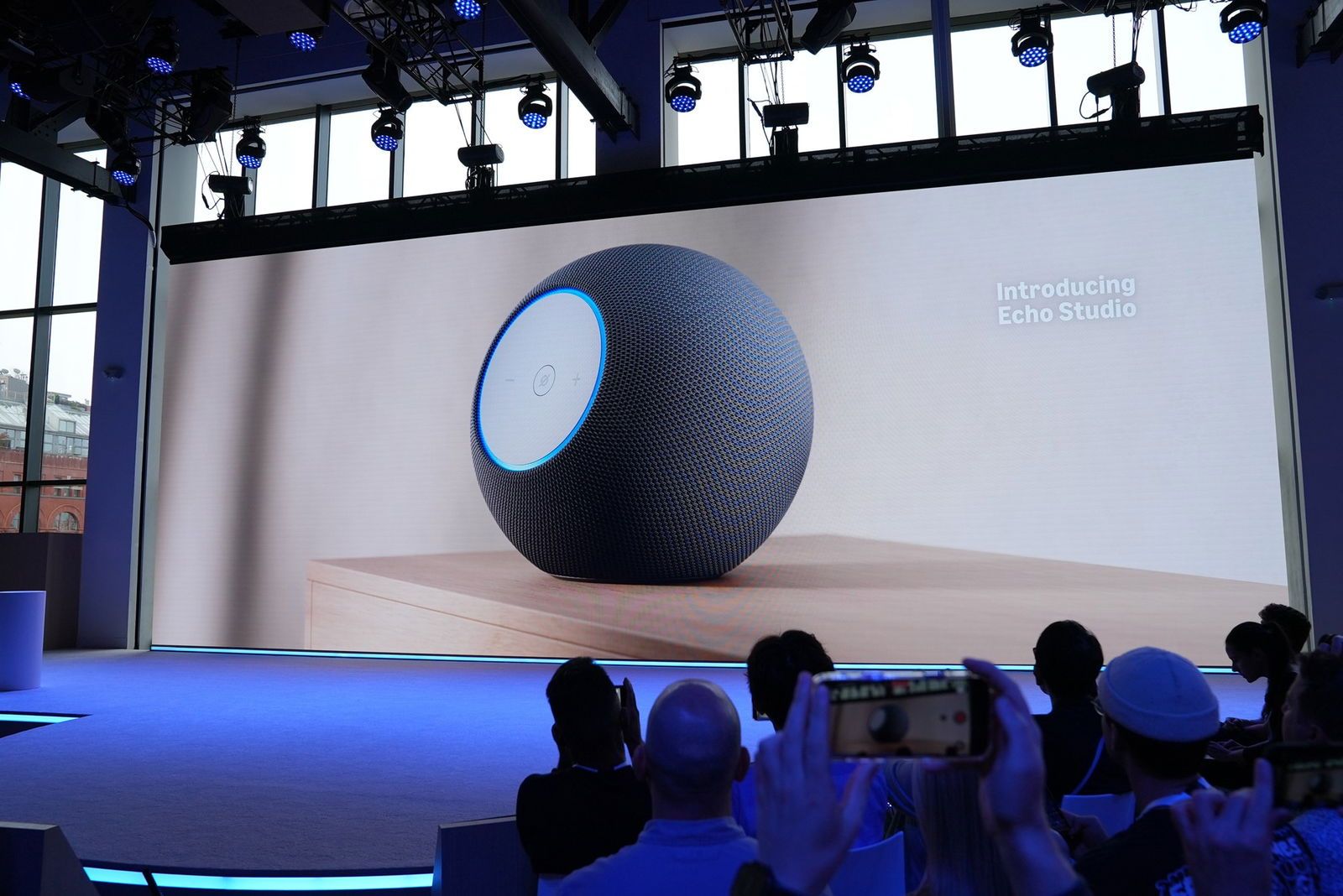Amazon just dropped its most ambitious smart speaker yet. The new Echo Studio, unveiled at Tuesday's fall hardware event, packs AI-powered language models into a redesigned form factor that's 40% smaller than its predecessor. At $220, it's positioning itself as the premium alternative in a crowded smart speaker market where Google and Apple are also pushing AI-first experiences.
Amazon's Tuesday hardware showcase wasn't just about refreshing product lines - it was about staking claim in the AI assistant wars. The company's new Echo Studio represents the clearest signal yet that voice computing is shifting from simple commands to conversational intelligence.
The device itself tells the story of Amazon's evolution. Where the original 2019 Echo Studio prioritized audio fidelity above all else, this version balances sound with smarts. "The most advanced and best-sounding Echo ever," according to Amazon's VP of Alexa and Echo Daniel Rausch, isn't just marketing speak - it's a technical pivot.
The AZ3 Pro chip sits at the heart of this transformation. Unlike previous Amazon silicon focused on wake word detection and basic processing, the Pro variant supports what Amazon calls "state-of-the-art language models and vision transformers." That's enterprise-speak for the kind of AI that can handle complex queries, contextual follow-ups, and multimodal interactions that OpenAI's voice mode has popularized.
Amazon's timing isn't coincidental. The company has watched Google integrate Gemini into Nest devices and seen Apple promise Siri improvements with each iOS update. The Echo Studio's AI capabilities, bundled with early Alexa Plus access, represent Amazon's counter-punch in a fight where being first to market no longer guarantees dominance.
The hardware improvements tell their own story. Three full-range drivers and a custom woofer maintain the Studio's audiophile credentials, while Dolby Atmos and spatial audio support keep it competitive with premium speakers from Sonos and others. But the real innovation might be the 40% size reduction - a feat of engineering that suggests Amazon's getting better at cramming more capability into less space.
The front-facing light ring repositioning seems minor until you consider user behavior. Previous Echo devices hid their status indicators, creating a disconnect between human and machine communication. Moving the ring forward makes the device more conversational, more present in the room.
